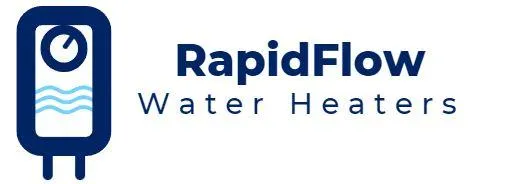Types of Water Heaters: Which Option is Best for Your Melbourne Home?
Choosing the right water heater for your family's needs can be intimidating with all the options out there. Traditional tanks, solar and tankless units all come with varying levels of energy efficiency and hot water capacity. Fear not, though - our guide offers a detailed breakdown of each type so you can confidently choose the right one. Read on to be informed and make the best decision for your household. Don't forget to weigh the pros and cons of each before making your final choice.

Storage Tank Water Heaters
Effortlessly access hot water whenever you need it with tank-style water heaters. These widely-used appliances heat and store water in insulated tanks, powered by gas, electric or oil. Never worry about running out of hot water again.
Pros:
Lower cost
Longer warranty periods.
Easier maintenance.
Cons:
Traditional tank water heaters operate inefficiently, leading to high expenses.
The have limited capacity, resulting in hot water shortages.
They pose a risk of water damage if the tank leaks or fails.

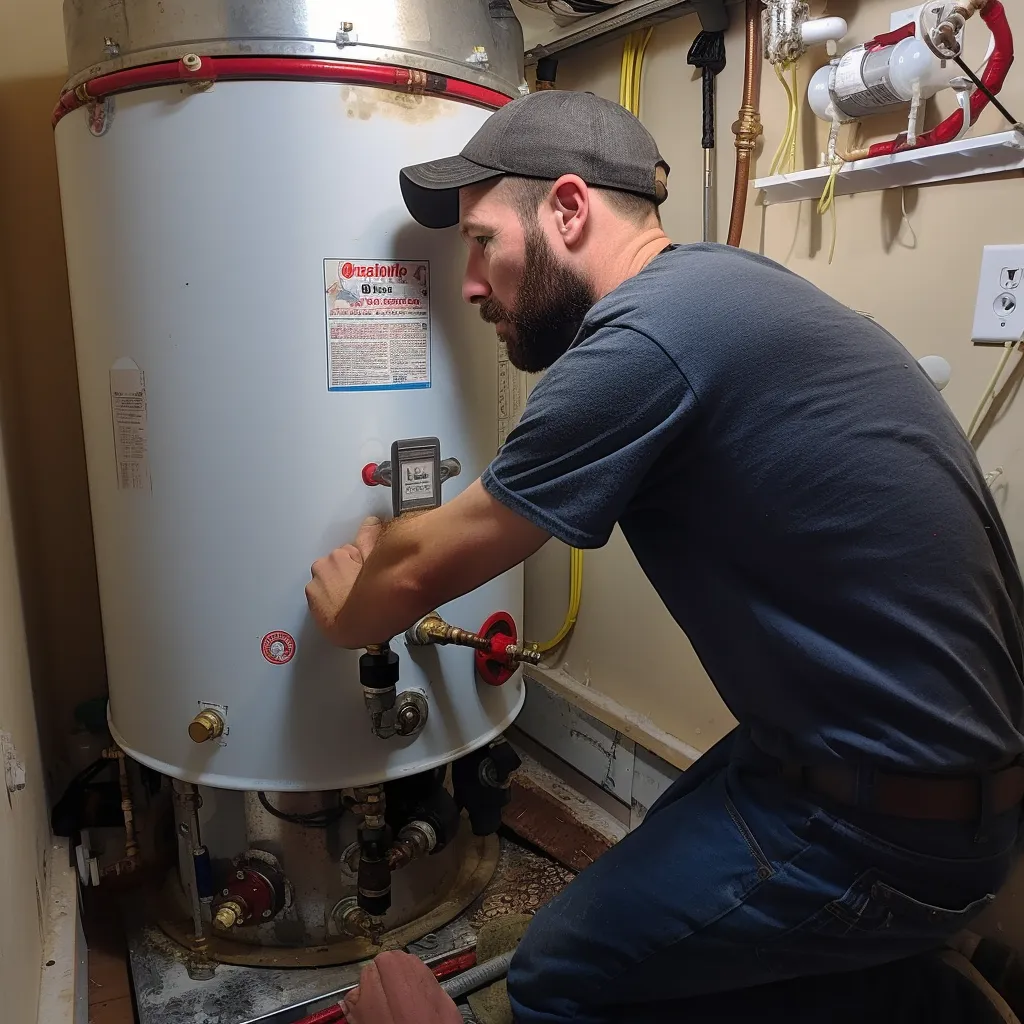
Tankless Water Heaters
Upgrade to a tankless water heater for modern efficiency! Unlike traditional models that store and heat water constantly, tankless heaters heat water as you need it. This means they use less energy, take up less space, and save you money in the long run. Here are some of the pros and cons of tankless water heaters:
Pros:
Say goodbye to large, bulky tanks and hello to the compact design of tankless water heaters that make installation a breeze.
Enjoy hot water anytime without the stress of high energy bills. These water heaters are energy-efficient and cost-effective, giving you consistent and reliable hot water supply.
Never have to fear the dreaded cold shower again with the endless supply of hot water as long as there is a demand for it.
Make a wise and economical investment for your home with a tankless water heater that has a longer life expectancy.
Cons:
One downside of tankless water heaters is their higher initial cost when compared to traditional storage tank water heaters.
In some cases, small spaces can cause venting complications, requiring additional piping or ductwork.
If you have high demand applications, you may want to consider a different option, as tankless water heaters have limited capacity and can lead to limited hot water availability per use.
Heat Pump Water Heaters
Efficient, affordable, and reliable, heat pump water heaters are a game-changer when it comes to heating water. These clever devices use a tiny compressor to extract heat from the surrounding air, delivering hot water for a fraction of the cost of traditional methods. And the best part? They don't rely on electricity, making them the perfect solution for when the power goes out. Say goodbye to sky-high utility bills and hello to a more dependable, sustainable option for your hot water needs.
Pros:
A smart alternative to conventional water heaters, a heat pump water heater can significantly reduce your monthly utility bills.
This eco-friendly appliance uses renewable energy from the air to warm your water, providing a more efficient, cost-effective option for your home.
Even during power outages, you'll still enjoy hot showers and clean dishes thanks to the reliable technology of a heat pump water heater.
Cons:
Heat pump water heaters come with a heftier price tag than conventional models.
Installation can prove challenging as they require ample ventilation and space.
Be prepared for limited hot water availability due to their capacity constraints.
.

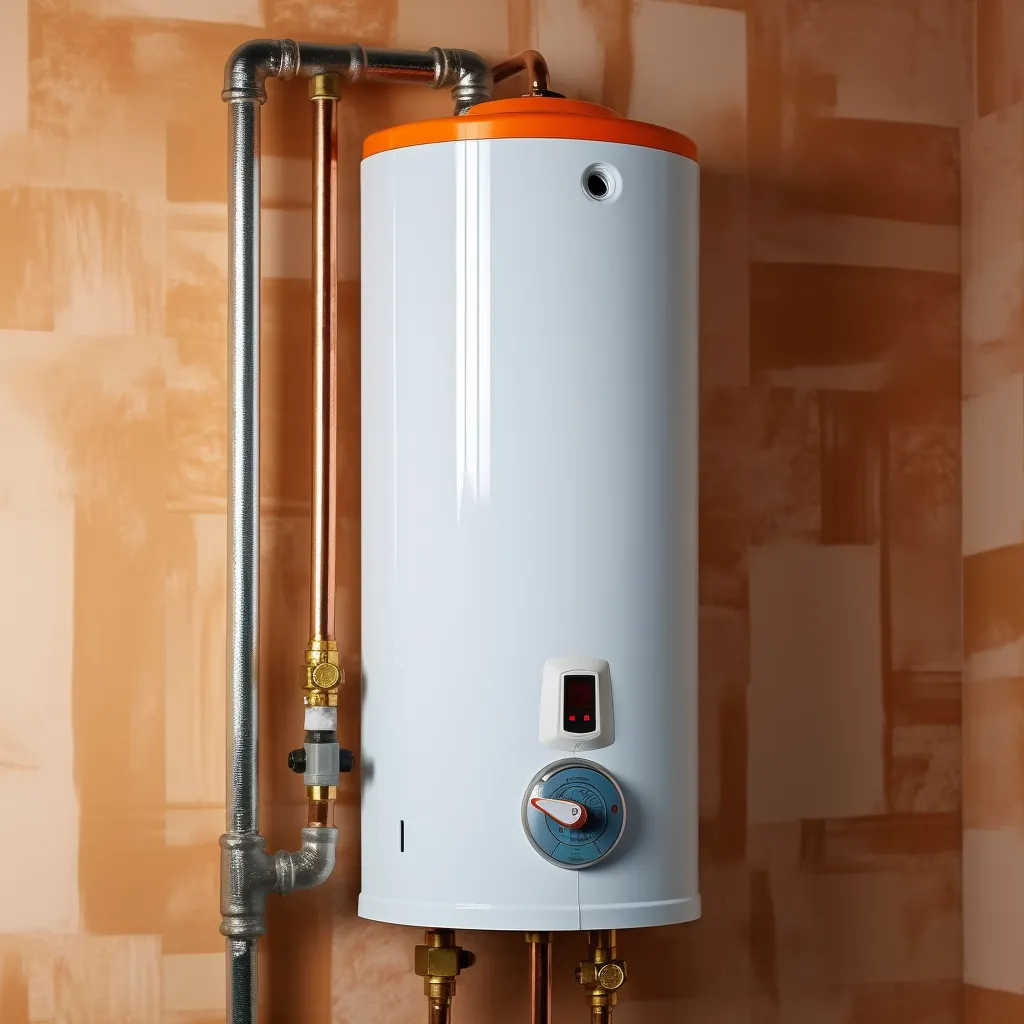
Heat Pump Hybrid Water Heaters
Get unparalleled efficiency and affordability in your water heating setup with heat pump hybrid water heaters! These systems blend the best of traditional tanks and heat pumps, guaranteeing top-tier functionality and cost savings. While the initial investment may be higher than with other standard heaters, the long-term benefits are well worth it.
Pros:
Save money on your monthly utility bills with advanced technology that increases energy efficiency.
The heat pump hybrid water heater uses only renewable energy from the surrounding air, while conserving electricity.
During power outages, you can still count on a steady supply of hot water.
These units last longer than traditional storage tank heaters, making them a smart investment for your home.
Cons:
Compared to traditional storage water heaters, tankless units can mean a significant upfront investment.
Installation may present challenges due to the unit's ventilation and space requirements.
Limited supply of hot water with each use.
Possible water damage if the tank fails or leaks.
Increased noise levels as a result of the heat pump.
Issues with heating and cooling in warmer environments.
Utility rebates or incentives may not be applicable in certain areas.
Solar Powered Water Heaters
Cut your monthly utility bills and go green with solar-powered water heaters! Choose from two types, active and passive systems, both designed to heat stored water and save you money. Harness the power of renewable energy and get started today!
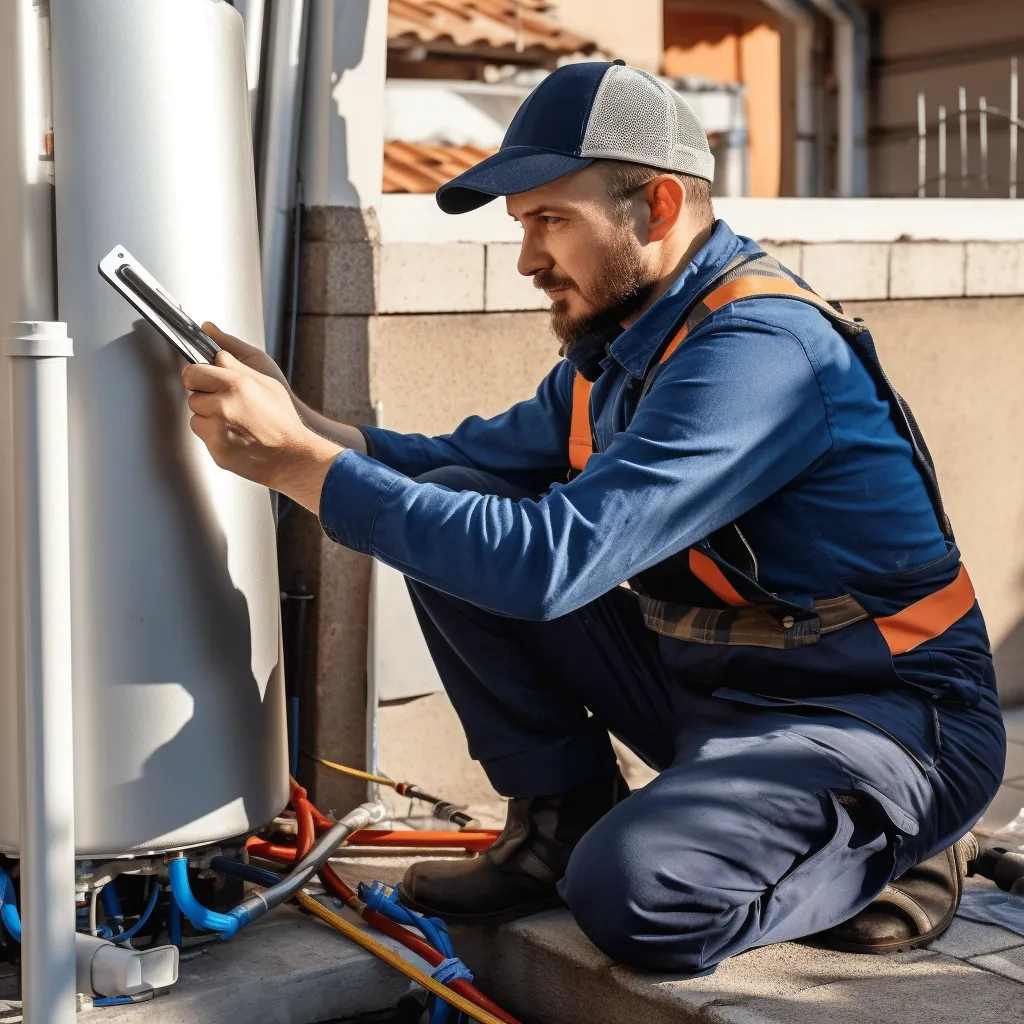
Active Systems:
Get ready to heat things up with the power of the sun! Active solar water heaters are the ultimate way to efficiently heat your water. Using pumps to transfer hot fluid from solar collectors to a storage tank, this system generates hefty amounts of hot water that you can use whenever you need it. Say goodbye to expensive energy bills and say hello to the power of Mother Nature!
Passive Systems:
Passive solar water heaters use natural convection to transport heated fluid from collectors to a storage tank. They're affordable to install and maintain. Keep in mind though, these systems provide less hot water than active systems. But still, it's a smart and cost-effective way to heat your water!
Pros:
Enjoy significant monthly energy cost savings with highly efficient solar water heaters.
These eco-friendly units use renewable energy from the sun, reducing your carbon footprint while providing ample hot water.
They boast a longer lifespan compared to traditional water heaters, allowing you to enjoy worry-free comfort and savings for years to come.
Cons:
They are pricier than traditional tank heaters at first.
Their installation requires more equipment and space, which could add complications.
Faulty or damaged panels could pose a risk for water damage.
Some models have limited capacity, yielding less hot water per use.
Depending on your location, you may not qualify for rebates or incentives and may be affected by limited sun exposure.
In warmer areas, heating and cooling issues may arise, while colder areas may face potential freezing.
Consistent upkeep is necessary for optimal performance.
If there is damage, repairs and replacements are more costly.

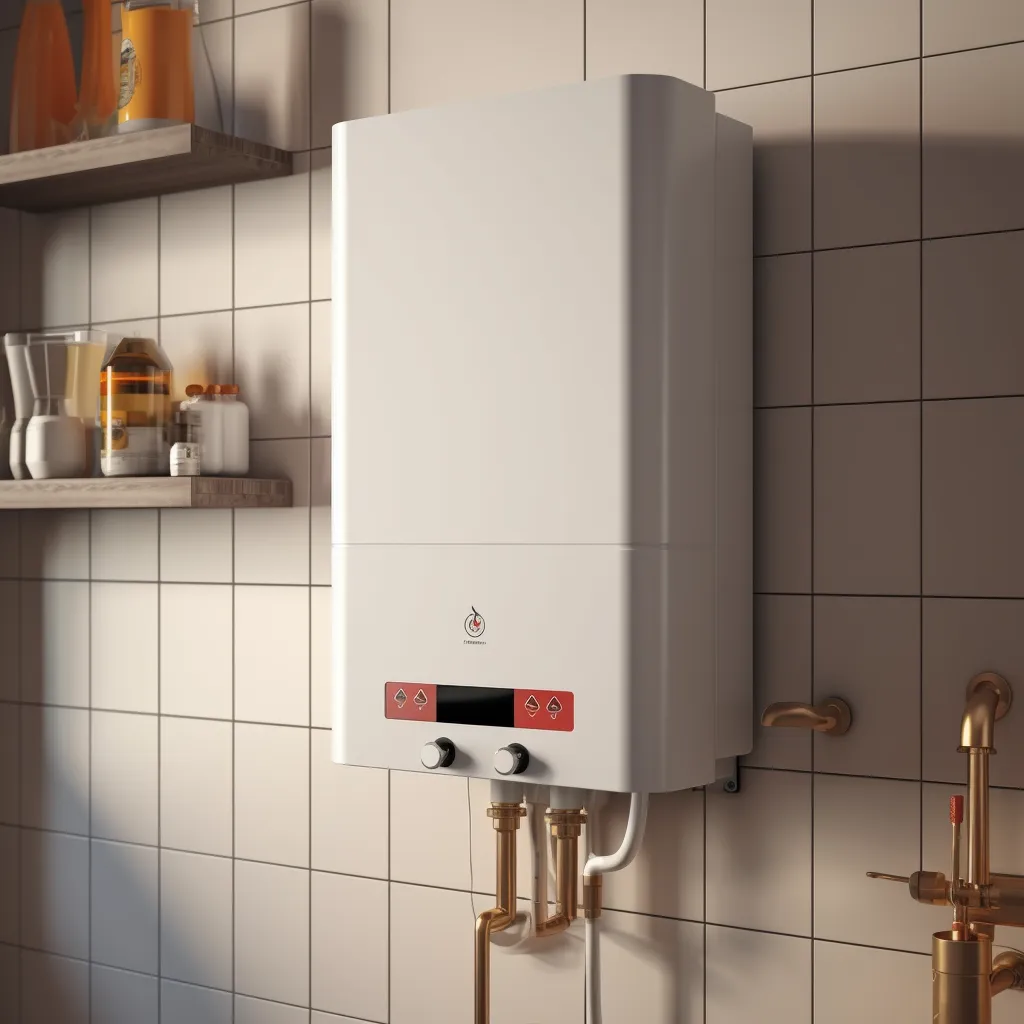
Point-of-Use Water Heaters
Get instant hot water in a small and efficient package with point-of-use water heaters. Avoid the costs and inefficiencies of traditional storage tanks while saving money on energy bills. Perfect for small spaces or anyone looking for a compact solution.
Pros:
Save money on your monthly utility bills with the exceptional energy efficiency of these units.
Their compact size allows for easy installation and maintenance, even in small spaces.
You'll enjoy a longer lifespan compared to traditional storage tank heaters.
Cons:
Get ready to fork over more cash when installing point-of-use water heaters.
These heaters not only require extra installation space and ventilation, but also have a lower hot water capacity. This leaves you with limited hot water availability per use.
With tankless heaters, there's a chance of tank failure or leaks.
These heaters can tend to be noisier than traditional heating units due to their heating component.
These models may not even qualify for rebates or incentives.
They are not suitable for high-demand areas.
If you live in a warmer climate, these heaters could also cause heating and cooling concerns.
Water Heaters With Hydronic Boilers
Revolutionize how you circulate heat with hydronic boilers, which use water instead of air for more efficient heating. These boilers are perfect for colder climates and can also provide domestic hot water, all without breaking the bank. Pair with tank water heaters for ultimate savings. Upgrade your heating game with hydronic boilers.
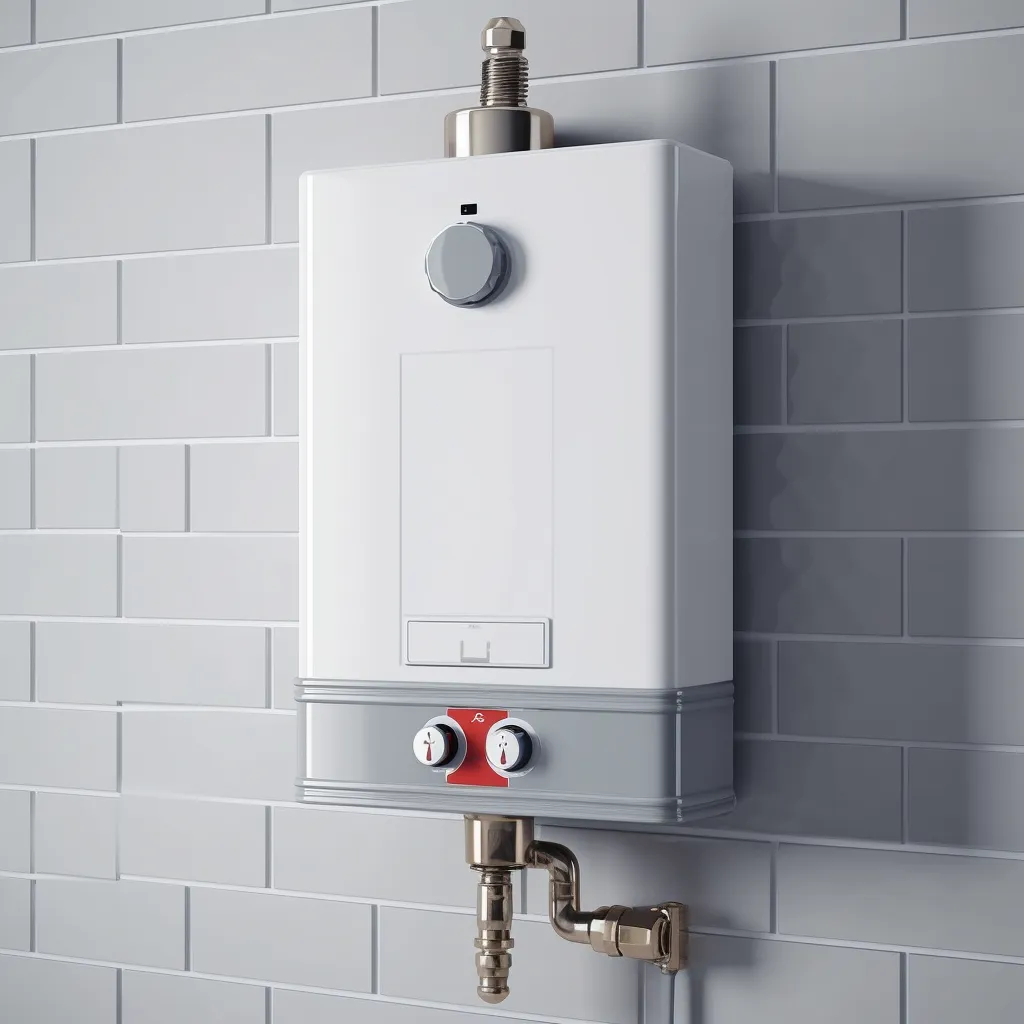
Pros:
Save on your energy bills with high-efficiency water heaters that feature hydronic boilers.
Enjoy both space heating and hot water for your home with this innovative system.
They have a compact design that can fit even in tight spaces for your convenience.
Expect to replace your traditional tank water heater less frequently with this longer-lasting option.
Cons:
They come with a higher initial price tag than traditional storage models.
With limited capacity, you'll get less hot water per use.
The heater component can be noisy during operation.
Not all utility rebates and incentives will apply to these models.
If you live in an area with high hot water demands, they may not be the best choice.
And if these units get damaged, repairs or replacements can be costly.


Smart Water Heaters
Upgrade your water heating game with smart water heaters- the cutting-edge technology for hot water. Access Wi-Fi enabled thermostats to monitor and manage your hot water usage and expenses from anywhere. With phone control, you can adjust the temperature settings and enjoy energy-saving features like the vacation mode to reduce your monthly costs. Stay ahead of the game and save money with smart water heaters.
Pros:
With Wi-Fi enabled thermostats, you can easily control your heater from anywhere, using your smartphone or any other device.
These heaters come equipped with various energy-saving modes, including vacation mode, which helps you save money on your monthly bills.
The best part is that they take up less space and last longer than traditional tank heaters.
Cons:
Higher upfront costs than traditional models.
Utility rebates and incentives may not apply, leading to less savings.
Software updates may be necessary to stay compatible with new devices.
Potential security risks if Wi-Fi connection is not secure.

Condensing Water Heaters
Experience the Best of Both Worlds with Condensing Water Heaters. These cutting-edge models effectively combine the benefits of tankless and conventional storage tank water heaters. Built with advanced technology that extracts heat from exhaust gases, they deliver exceptional performance and significant cost savings.
Pros:
Condensing water heaters use renewable energy from the air to deliver maximum energy efficiency, which translates to cost savings on utility bills.
They have a longer life expectancy compared to traditional tank water heaters.
They can provide hot water even when power is out.
Cons:
Condensing water heaters are costlier.
They require more space and ventilation for installation than traditional storage water heaters.
While they provide energy savings, they have limited hot water capacity.
In the event of a tank malfunction, there could be significant water damage complications.

Tips on choosing the right
water heater for your home
Get the right water heater size for a comfortable and cost-effective living experience. A small water heater won't provide enough hot water, while a large one takes up too much space and increases your expenses. Assess your daily needs and lifestyle to select the proper size. Save money and ensure ample hot water by choosing the perfect water heater size for your family.
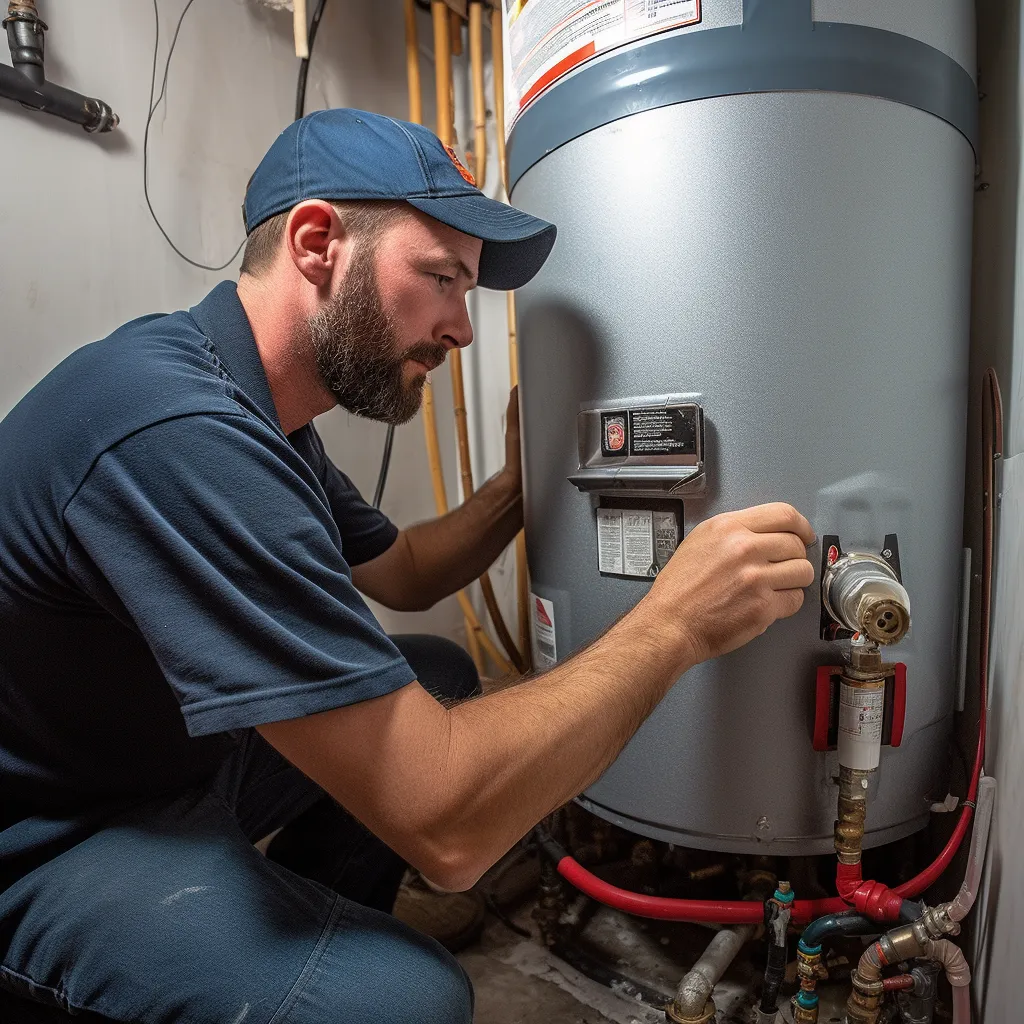
When should you
replace your water heater?
Hot water is an essential part of your daily routine, but did you know your home's water heater has a lifespan of 10-15 years? Don't risk a cold shower or subpar dishes and laundry. If your water heater is approaching the end of its lifespan, invest in a new one for reliable and efficient hot water every day.
Here are other signs that could mean it's time to get a new water heater:
Leaking tank.
Your water heater is making strange noises.
Discolored and rusty hot water.
No hot water.
Variations in water temperature.
Higher energy bills.
Don't tackle water heater troubles alone. Get a licensed plumber's expert advice on your options to make the right decision. Replacing a faulty unit may be an upfront cost, but it pays off in lower energy bills and more dependable hot water in the long run. Make an investment that's worth it.
Maintenance tips for maximum
water heater efficiency
Keep your water heater in top shape with regular maintenance to avoid unexpected problems. Flushing the tank frequently to remove sediment buildup can help maintain efficiency, and with a quick inspection of the anode rod and pressure relief valve, you'll be able to catch any issues before they become a major problem. Additionally, a tidy area around the heater can prevent damage and ensure longevity. By following these simple routines, you'll enjoy affordable and reliable hot water every day.
Benefits of hiring a licensed plumber
to replace your water heater
Don't be tempted to replace your water heater on your own. Hiring a water heater professional comes with many benefits you shouldn't overlook. Here are some reasons it's worth considering.

Skilled water heater experts possess the necessary training and knowledge about safely and efficiently install your new unit.
They can provide recommendations on the best type and size to meet your unique needs.
Licensed plumbers keep up with local building codes to ensure your water heater is installed in compliance.
If any issues arise during the installation process, entrusting the work to a pro can offer speedy and effective troubleshooting and resolution.
With all of the required tools and equipment on hand, these professionals are ready to tackle the job.
Hiring a licensed plumber to replace your water heater can save time, money, and headaches.
Ready to Solve Your Plumbing Needs?
For reliable, expert plumbing services tailored to the needs of Melbourne and its neighboring cities, look no further than RapidFlow Water Heaters. We’re here for you 24/7, ensuring that your plumbing is always in top condition.
Call us today to schedule your service!
Business Hours: Monday - Sunday, 24 Hours
Phone Number: 321-844-2770
Location: Melbourne, FL, serving all surrounding areas.
Trust your local experts at RapidFlow Water Heaters for professional, timely, and efficient plumbing solutions.
GET IN FULL TOUCH
PHONE: 321-844-2770
EMAIL:
sam@waterheatermelbourne.com
RapidFlow Water Heaters
Melbourne, FL 32901
